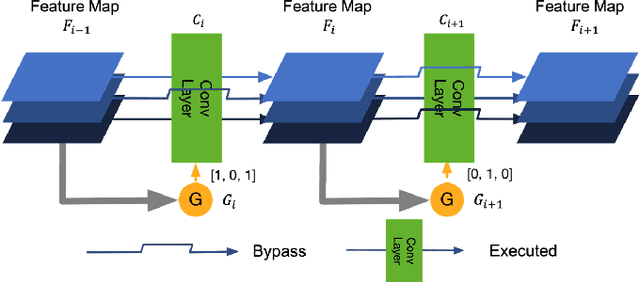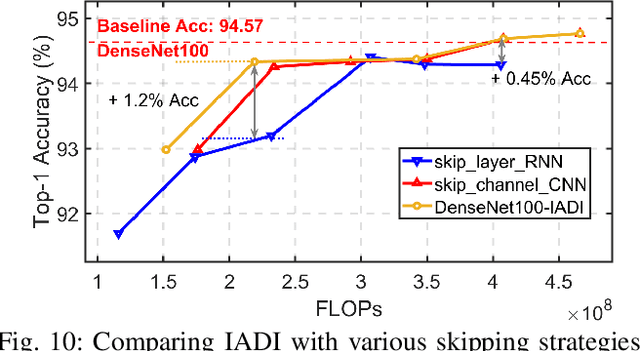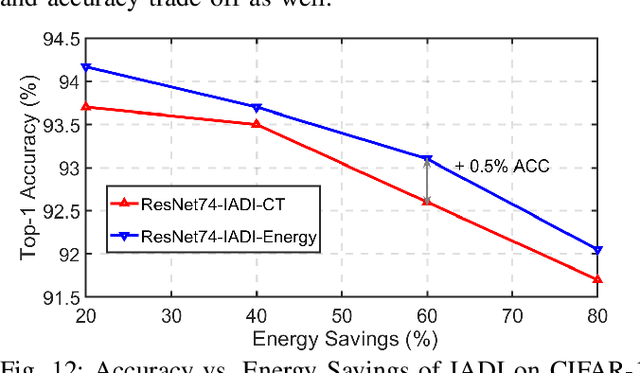Dual Dynamic Inference: Enabling More Efficient, Adaptive and Controllable Deep Inference
Paper and Code
Jul 17, 2019



State-of-the-art convolutional neural networks (CNNs) yield record-breaking predictive performance, yet at the cost of high-energy-consumption inference, that prohibits their widely deployments in resource-constrained Internet of Things (IoT) applications. We propose a dual dynamic inference (DDI) framework that highlights the following aspects: 1) we integrate both input-dependent and resource-dependent dynamic inference mechanisms under a unified framework in order to fit the varying IoT resource requirements in practice. DDI is able to both constantly suppress unnecessary costs for easy samples, and to halt inference for all samples to meet hard resource constraints enforced; 2) we propose a flexible multi-grained learning to skip (MGL2S) approach for input-dependent inference which allows simultaneous layer-wise and channel-wise skipping; 3) we extend DDI to complex CNN backbones such as DenseNet and show that DDI can be applied towards optimizing any specific resource goals including inference latency or energy cost. Extensive experiments demonstrate the superior inference accuracy-resource trade-off achieved by DDI, as well as the flexibility to control such trade-offs compared to existing peer methods. Specifically, DDI can achieve up to 4 times computational savings with the same or even higher accuracy as compared to existing competitive baselines.
 Add to Chrome
Add to Chrome Add to Firefox
Add to Firefox Add to Edge
Add to Edge